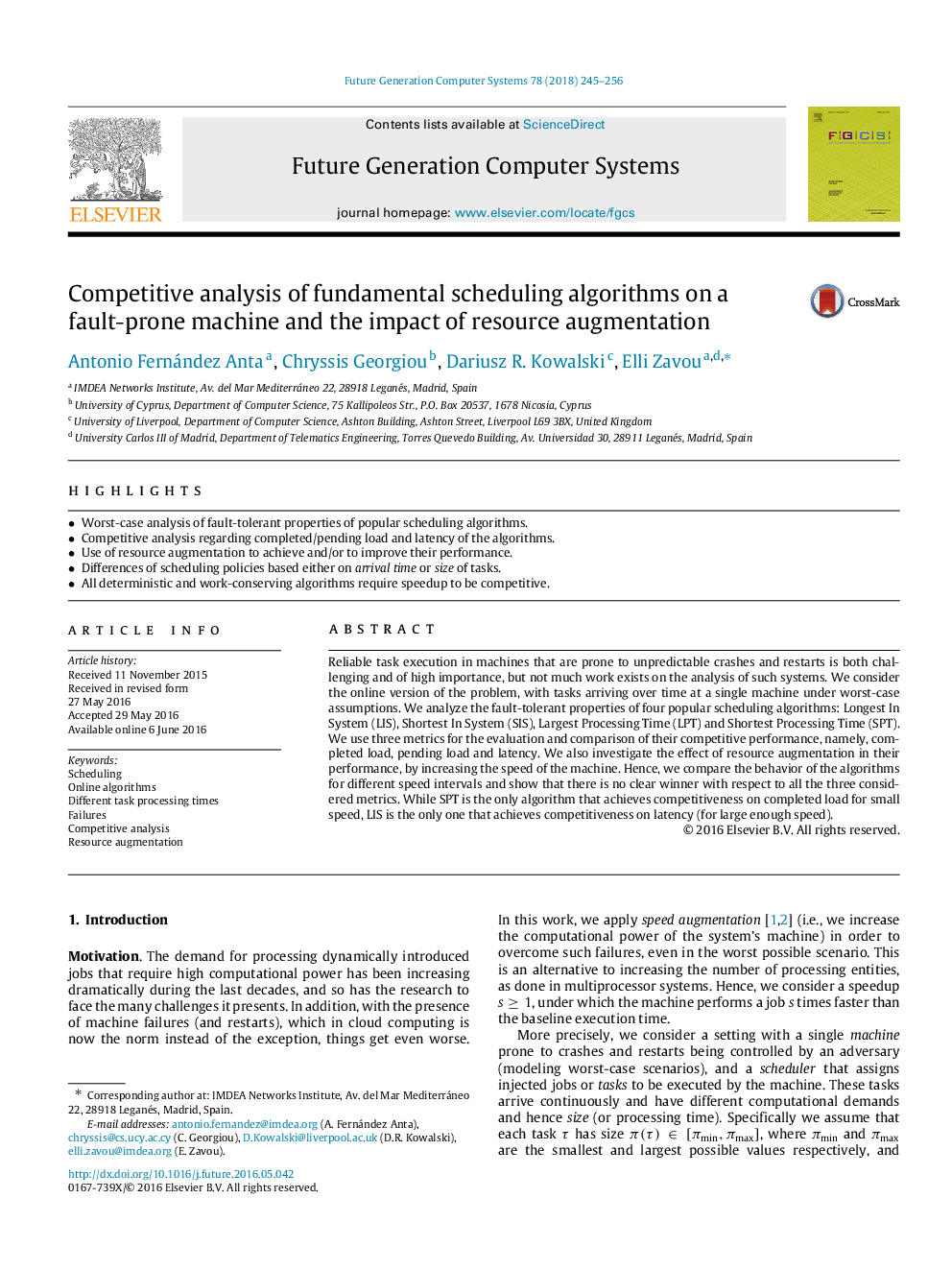| Article ID | Journal | Published Year | Pages | File Type |
|---|---|---|---|---|
| 4950274 | Future Generation Computer Systems | 2018 | 12 Pages |
â¢Worst-case analysis of fault-tolerant properties of popular scheduling algorithms.â¢Competitive analysis regarding completed/pending load and latency of the algorithms.â¢Use of resource augmentation to achieve and/or to improve their performance.â¢Differences of scheduling policies based either on arrival time or size of tasks.â¢All deterministic and work-conserving algorithms require speedup to be competitive.
Reliable task execution in machines that are prone to unpredictable crashes and restarts is both challenging and of high importance, but not much work exists on the analysis of such systems. We consider the online version of the problem, with tasks arriving over time at a single machine under worst-case assumptions. We analyze the fault-tolerant properties of four popular scheduling algorithms: Longest In System (LIS), Shortest In System (SIS), Largest Processing Time (LPT) and Shortest Processing Time (SPT). We use three metrics for the evaluation and comparison of their competitive performance, namely, completed load, pending load and latency. We also investigate the effect of resource augmentation in their performance, by increasing the speed of the machine. Hence, we compare the behavior of the algorithms for different speed intervals and show that there is no clear winner with respect to all the three considered metrics. While SPT is the only algorithm that achieves competitiveness on completed load for small speed, LIS is the only one that achieves competitiveness on latency (for large enough speed).
